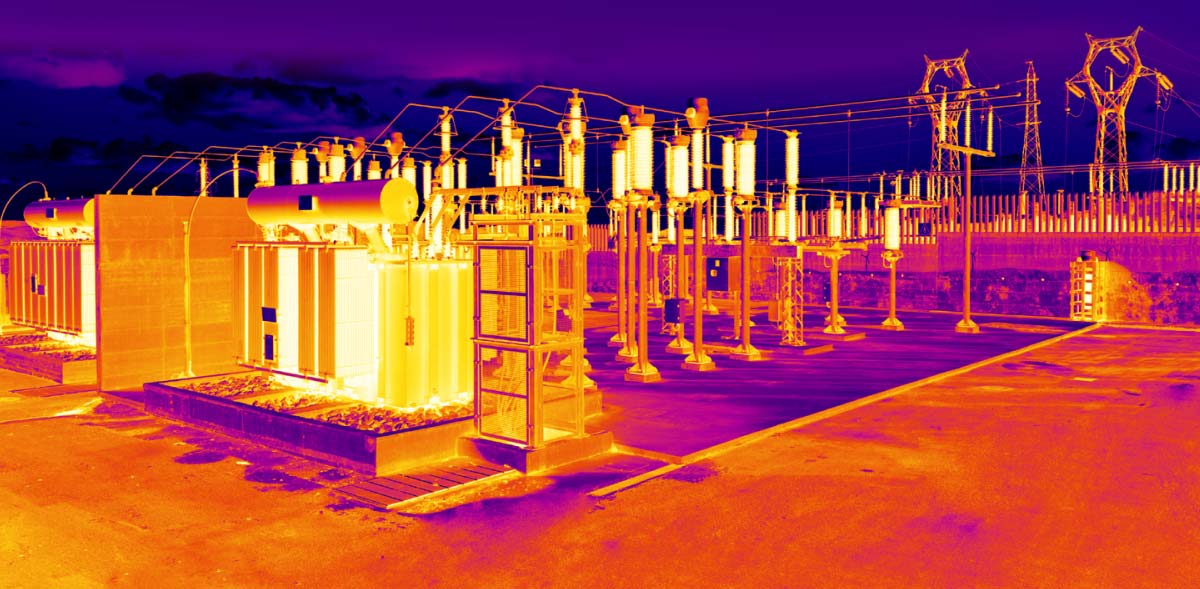What will security look like post COVID-19?

Everything has changed. Not just in the way we shop or the way we interact with our family and friends, but in ways that are setting a precedent for years to come.
Technology is rapidly changing to suit a world where physical contact and touch in public is becoming obsolete, with cashiers adopting shields and gloves behind specialised plastic barricades. It is the beginning of a whole new way of living and working for which we have no previous experiences and history to refer back to.
In a matter of months, ecommerce giants in China are ramping up their development of robot deliveries. The world of technology is moving faster than ever to find solutions to the many business and lifestyle issues presented to the world due to COVID-19.
In this blog post, we take a peek at what the world might look like post COVID and the role security may have to play.
CCTV – Iris Scanning.
What would once be a rare sight, walking down the street it is now more unusual to see people not wearing a mask or protective face coverings and equipment.
For many businesses relying on CCTV alone to identify people, this presents a new challenge if people’s faces are now covered. However, iris eye scanners can identify people from 40 feet away, meaning your eye may become your new passport.
Having been previously tested and implemented in some of the world’s major airports, iris scanning was gaining some momentum prior to COVID-19. Combining our biometrics with our passports may be on the agenda sooner than you think – and what may have only occurred in sci-fi movies like Minority Report, may become a reality…
Thermal Cameras
Not just a tool ghostubsting TV show hosts use to seek paranormal activity, thermal cameras have become increasingly popular and many businesses are using them in their warehouses, Abel Alarm has seen an increase in sales over the last 4 months.

With many large supermarkets in USA trialling thermal cameras in their stores and turning away customers with a high temperature, could this be a practice adopted by other countries?
Will we see more shops refusing entry to people who may be potential carriers of any virus? During the pandemic, people have become more accustomed to shopping online and so the option for shops to turn away customers because their products can be purchased online is far more legitimate.
FaceTime and web consultations
The installation of home security systems and devices may have stalled over the past few months, but many companies have been offering webcam based site evaluations and consultations.

Although initially challenging, the last few months have proven that using video tools to conduct consultations and evaluations are possible. As well as being a money saving measure, it speeds up the process and reduces the time needed if the consultation were to be carried out in person.
Elderly people embracing new technology
We have all had to adapt to a new way of living and working, and this couldn’t be more the case for people aged 65 who have really had to embrace technology over the last few months to shop and keep in touch with loved ones.
Many misspelt zoom passwords later, the power of technology has really proved itself in maintaining human connection, and for many elderly people this could be the start of much more.
According to recent research from Ofcom, 43% of people over 65 own at least one device that connects to Wi-Fi, be it a mobile, laptop or tablet. This is up by 44% since 2016, suggesting a growing increase in elderly people embracing technology, and points towards a deepening comfort level for tech.
From asking Alexa or programming lights, smart home technology in recent years has become even more prevalent, making life that little bit easier and more convenient. With this in mind, smart living solutions are now being considered as an effective way to support the elderly and ensure they can remain at home comfortably.
A cashless society
A cashless society has been looming for a long time, with parents opting to pay for school meals online, “dinner money” is a concept of the past.
Using your smartphone to pay for just about anything, from your coffee to a new sofa there are no limits, and with the likelihood of theft and lost money decreasing, it’s no wonder many people are opting for smart payment methods.
Over half a billion is spent via cashless payments alone every year. Since lockdown, many shops have only accepted card payments to avoid passing infection.
This may have been a small but significant step in moving to all future payments being made by card, over cash at kiosks, vendors and so on.
Conclusion
It is safe to say that the world we once knew has changed forever and this is just the beginning. As companies take their first steps out of lockdown and into this new business environment, it will be a case of how quickly can these businesses adapt over the coming months.
The learning curve will be huge, however the rewards for businesses willing to change will be immeasurable.
Latest Articles
Top 5 tips for keeping your home secure during winter5 Reasons you should have a video doorbell
What to do in the aftermath of a burglary and how to avoid being retargeted
Potentially Lifesaving information about Fire Extinguishers and which one you need.
5 devices for your home that can support an eco-friendly lifestyle